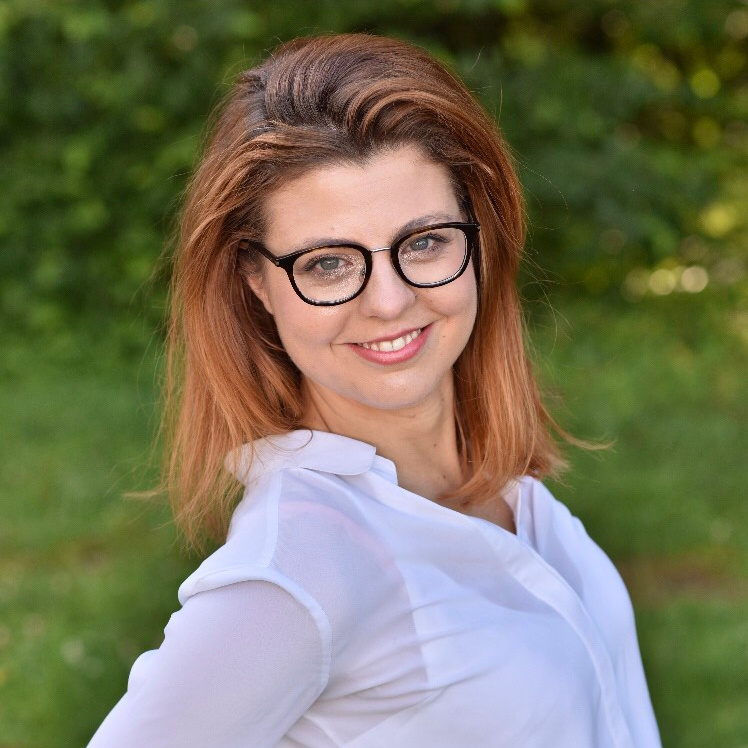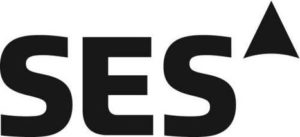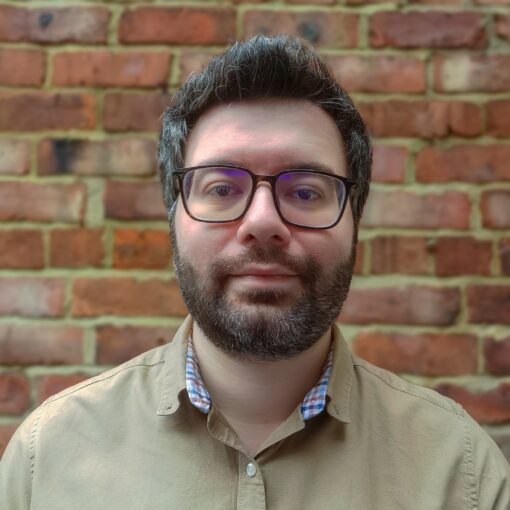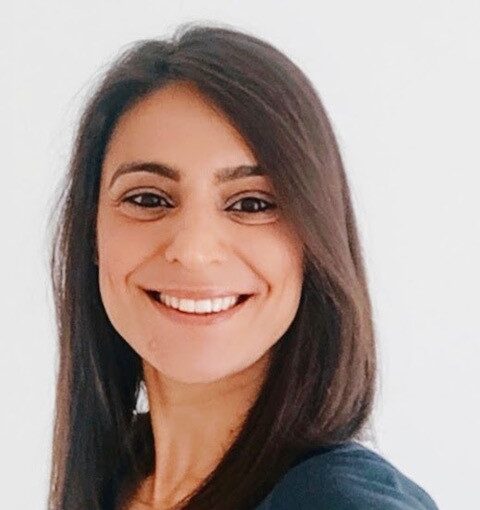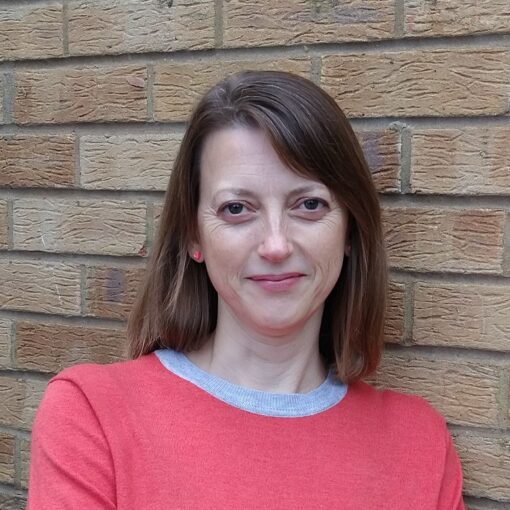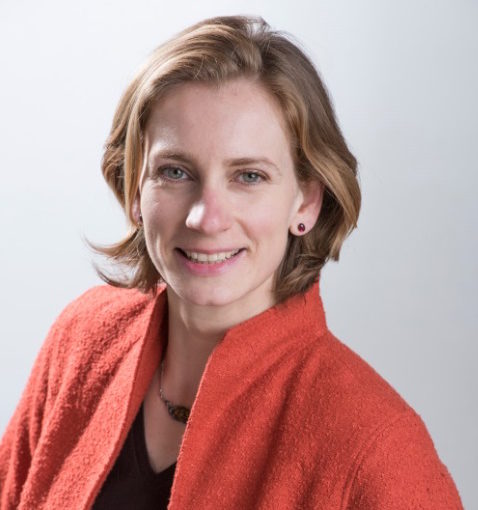PhD in Energy, École Polytechnique Fédérale de Lausanne (EPFL) (2014)
| Systems Engineer | |
|---|---|
| SES | |
Year entered in a non-academic position: 2015
Job highlight: Satellite Engineering is a strongly addictive business. The diversity and challenges involved in designing, manufacturing and then operating a satellite when in-orbit is extremely engaging.
My research training set me up to… balance independent thinking, inventiveness and discipline, which helps me deal with various situations, find original solutions and get things done efficiently, as well as under pressure.
What’s your background?
Mechanical Engineering with a Minor in Energy Systems. My PhD project focused on the experimental analysis of the thermo-hydrodynamic behavior inside a pulsating heat pipe. I finally joined SES as a Satellite Engineer after the completion of a postdoc exploring the feasibility of a heat transport device engineered for space.
Why did you move away from academia?
To be totally frank, I always thought that a career in industry would better fit my personality and aspirations. During an internship in the R&D department of an engineering company I was offered a PhD position on one of the University projects they were leading. Strong involvement of the industrial partner during my PhD (and the Postdoc afterwards) and the promise that I would go back to industry after its conclusion pushed me to accept the offer.
Is there anything you miss about academia?
I miss living in a campus where you are in touch with students, graduates and postgraduates with different backgrounds, everyone with a great story to share. I miss taking part in conferences and seminars, to keep up with the latest scientific outcomes and the networking side of it. But most of all, I miss teaching classes and learning tons out of it. I think anyone who has done a PhD would experience that as it is something you can treasure throughout your life!
How did you get this job?
I found the offer for my first SES job online and I applied. The recruitment process was tough as my background was not what one would call ‘the-perfect-fit’ for the job SES was offering. I came to the interviews prepared, motivated and with the touch of ‘assertiveness’ that comes with a PhD and which, I am sure, helped me in demonstrating my potential. I was selected from many candidates and recently, after 3 years, I moved to a new position inside SES.
Did you think you had the skills required for your current position before you started? Were you right?
Engineering school provided me with a broad palette of technical skills and a PhD gave me the flexibility to learn and develop new competencies. I did not have the know-how nor the experience in the field of satellite engineering when I started, but I had the ability and the motivation to quickly catch-up.
How did your PhD prepare you for your current job? For example, what were the transferable skills that you developed during your PhD that are most relevant to your current job?
During my PhD, I faced a large number of issues I had to solve in order to make progress with my research, thanks to which I developed strong analytical skills and the ability to come-up with sometimes very original ideas and solutions. Moreover, the way a PhD works with periodical reviews of the research outcomes, I had the chance to present and defend my work. I find this extremely relevant in my day-to-day working life, when I report or present my work to my company executives and colleagues. I find it easy to discuss many topics and I love when it comes to the hard questions!
During my PhD, I faced a large number of issues I had to solve in order to make progress with my research, thanks to which I developed strong analytical skills and the ability to come-up with sometimes very original ideas and solutions.
Did you have any preconceptions about your sector that proved to be wrong?
I had none, I started at SES with a clear mind.
Can you describe a typical week in your job?
It is hard to describe as there are different activities going on when a satellite is first designed and then built, tested and finally launched. We provide daily oversight of the work performed by the satellite manufacturer and this usually happens by participating in many meetings, some of them off-site, where we review the last results and discuss the way forward.
What’s the workplace culture like?
Busy and Fun! I enjoy the high level of professionalism and commitment of my colleagues very much, but what I appreciate the most is the encouragement I receive from the management team. Feeling my work is valued and knowing that someone is listening to my career aspirations really boosts my motivation.
What are your favourite parts of your job?
It is Space Science after all, with the challenges that come with it. I am lucky to be part of this world which gives me the opportunity to face a variety of subjects and to learn something new every day!
It is Space Science after all, with the challenges that come with it. I am lucky to be part of this world which gives me the opportunity to face a variety of subjects and to learn something new every day!
What are your reflections on your (future) career path?
My motto is ‘always choose the hardest battle, never stop looking for the unbeaten path’. In the future, I do not exclude to cover non-technical positions inside SES.
Do you have any advice for current graduate students and postdocs considering a career outside of academia?
Never think that academia can limit or preclude a career in industry. You might not have 5 or 10 years of working experience in a company, but you have an outstanding intellectual background that will help you succeed in whatever you are doing. Be motivated, show your commitment, ask for help and support when you feel it necessary to advance. Be humble!
Can you recommend any relevant resources, organisations or events that might help somebody new to the sector find out more about it?
SES has recently joined Oxford Recruiters Group and we attend many events on campus throughout the year. Please come and talk to us and we will share with you all amazing stories about satellite industry, SES and opportunities within our organisation.
SES has a bold vision to deliver amazing experiences everywhere on earth by distributing the highest quality video content and providing seamless connectivity around the world. As the leader in global content connectivity solutions, SES operates the world’s only multi-orbit constellation of satellites with the unique combination of global coverage and high performance, including the commercially-proven, low-latency Medium Earth Orbit O3b system. By leveraging a vast and intelligent, cloud-enabled network, SES is able to deliver high-quality connectivity solutions anywhere on land, at sea or in the air, and is a trusted partner to the world’s leading telecommunications companies, mobile network operators, governments, connectivity and cloud service providers, broadcasters, video platform operators and content owners. SES’s video network carries over 8,300 channels and has an unparalleled reach of 367 million households, delivering managed media services for both linear and non-linear content.
Further information is available at: www.ses.com.
Why join SES?
As a global content and connectivity company, we believe that every business, mission and person should have the freedom to take their story anywhere. Every day, we do the extraordinary in space to deliver amazing experiences everywhere on Earth, and we are always looking for talented, new team members to help write the next chapter.
At SES, we think in future to service the present, and as we expand into new technologies and markets it’s an exciting time to join us. So, if you want to help bridge the digital divide to connect people in open ocean, remote desert, or at 30,000ft, we can provide the challenge.
And while you work to enable the stories of others, we want to give your own infinite possibility. Wherever you want your career to go, we can help you get there.

